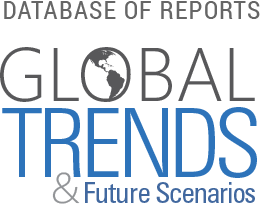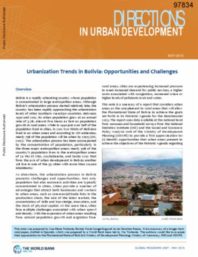
Urbanization Trends in Bolivia: Opportunities and Challenges

World Bank Group Summary:
This note is a summary of a report that considers urban areas as the complement to rural areas that will allow the Plurinational State of Bolivia to achieve the goals set forth in its Patriotic Agenda for the Bicentennial 2025. The report uses data available at the national level from censuses and household surveys from the National Statistics Institute (INE) and the Social and Economic Policy Analysis Unit of the Ministry of Development Planning (UDAPE) to provide a first approximation to: (i) identify opportunities that urban areas present to achieve the objectives of the Patriotic Agenda regarding the reduction of poverty and universal coverage of basic services; (ii) understand and overcome the challenges that the expansion of urban areas present, and understand the growth dynamics of different types of cities; (iii) review the institutional framework and planning tools currently available for urban development; and (iv) provide suggestions for future analysis. However, due to limitations of the available data, the report does not include an economic analysis of urban areas nor an in-depth analysis of issues at city level. It is expected that the results of the report can inform the projects that the Government of Bolivia is developing and implementing in cooperation with the World Bank and other partners, such as improving national data, urban labor markets, poverty and informality, and investment for infrastructure in cities.
- Issue:
- Demography, Urbanization and Migration
- Region:
- Latin America
- Country:
- Bolivia
- Year Published:
- 2015
- Institution:
- World Bank Group

